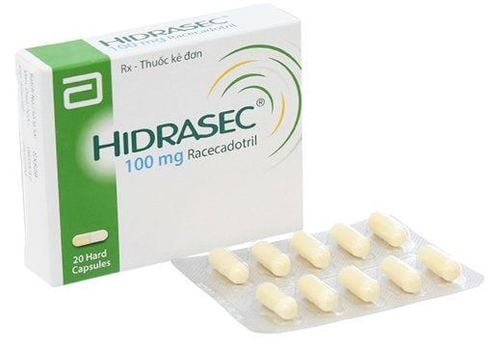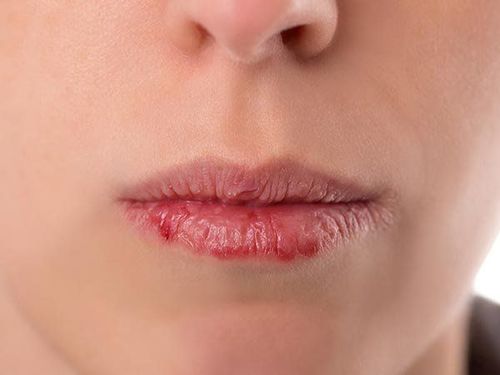Acute diarrhea is a medical condition that causes the patient to pass stool more frequently, and persistently vomit which results in severe dehydration. It can lead to low blood pressure, cardiovascular collapse, exhaustion, and even death.
1. What is acute diarrhea?
Acute diarrhea is a common medical condition among all ages. It is characterized by having mushy stool at least 3 times per day and lasting for less than 14 days. Common causes of acute diarrhea are as follows:
- Bacteria: The most common bacteria are Escherichia Coli, as well as Shigella and Typhoid which are normally found in contaminated food. Diarrhea caused by bacteria often becomes severe and causes dehydration, blood infections, and even death.
- Virus: Common viruses include Rotavirus and Norovirus.
- Parasite.
- Other causes: the usage of antibiotics, or medications for gout.
- Some gastrointestinal diseases (such as cancer, polyps, ulcerative colitis, and gastrointestinal surgery) causing chronic diarrhea can sometimes be mistaken for acute diarrhea.
Common symptoms of acute diarrhea include:
- Loose stools at least three times per day, watery stool or stools with unusual colors, or a mix of mucus and blood.
- Intermittent abdominal pain around the navel. Passing stool can relieve the pain.
- Vomiting of food, stomach fluids, and bile.
- Symptoms of dehydration (complications): thirst, sunken eyes, fatigue, low urination, dry and cold skin, slow mental reactions, lethargy, and even coma.
2. What is low blood pressure?
The normal blood pressure of an adult is about 90-139 mmHg for systolic blood pressure and 60-89 mmHg for diastolic blood pressure. Low blood pressure is a condition in which systolic blood pressure declines below 90 mmHg or diastolic blood pressure is under 60 mmHg.
Low blood pressure is a dangerous indication suggesting that blood is not pumped effectively enough to carry oxygen and nutrients to organs. The brain is the first organ impacted by this situation, therefore, the patient will have some symptoms such as dizziness, lightheadedness, and palpitations. Besides, low blood pressure also leads to uncontrolled rapid heartbeats, loss of consciousness or confusion, brain death, and ultimately, death.
3. Does diarrhea decrease blood pressure?
There are many causes of low blood pressure, depending on different factors such as posture, health condition, emotions, activities, and the time of day.
One major reason for low blood pressure is dehydration which often results from acute diarrhea. During acute diarrhea, a large amount of fluid is eliminated from the body, which decreases the total blood volume. This is the common cause of low blood pressure among all ages including healthy people or the elderly. Besides, dehydration can appear because of diarrhea or its accompanying symptoms such as excessive vomiting or sweating.
4. How to control low blood pressure caused by acute diarrhea?
In case an individual with acute diarrhea has some signs of low blood pressure, he or she should stop all activities. The patient has to sit or lie down to make blood circulate more effectively and improve low blood pressure. If vomiting and passing loose stool many times lead to low blood pressure, the patient should drink electrolyte water, watery porridge soup, milk, and watery vegetable broth to replenish fluids quickly.
After temporarily controlling the low blood pressure situation, the patient should pay attention to the diet and lifestyle to avoid recurrence and stabilize the blood pressure of the body.
- Having a balanced diet, enough 3 meals with a variety of vitamins per day.
- Drink about 1.5 to 2 liters of water every day and increase water and electrolyte water intake in case of dehydration or heavy physical labor.
- Limit usage of alcohol and stimulants.
- Maintain a healthy lifestyle, get enough sleep, avoid sudden posture changes, overwork, or work too long.
- Walk frequently, and avoid sitting or standing in one place for a long time. Keep the head low and legs high to ensure the blood flow to the brain when sleeping.
- Maintain an optimistic mentality, and avoid negative emotions such as sadness, fear, or anxiety.
5. How to prevent acute diarrhea?
Acute diarrhea easily spreads through contaminated food and leads to an epidemic. To anticipate acute diarrhea efficiently and protect individual and community health, the below biện pháp should be applied:
- All food must be cooked thoroughly before eating.
- Wash hands with soap before having meals.
- Ensure dishes, bowls, and other dating utensils are clean and dipped in boiled water before use.
- Store cooked food properly to avoid flies, mosquitoes, wind, and dust.
- Handle stools, and waste hygienically, and avoid using fresh manure for fertilizing or watering crops.
- Follow the “six no’s” guidance: no raw vegetables, no raw animal blood pudding, no fermented shrimp paste, no raw fish or seafood salad, no uncooked fermented pork or meat, and no unclean water or unsanitary ice.
Hope this article from Vinmec has answered your question, "Does acute diarrhea cause low blood pressure?" If you have any further questions, please ask a doctor for consultation or specific advice.
To arrange an appointment, please call HOTLINE or make your reservation directly HERE. You may also download the MyVinmec app to schedule appointments faster and manage your reservations more conveniently.













